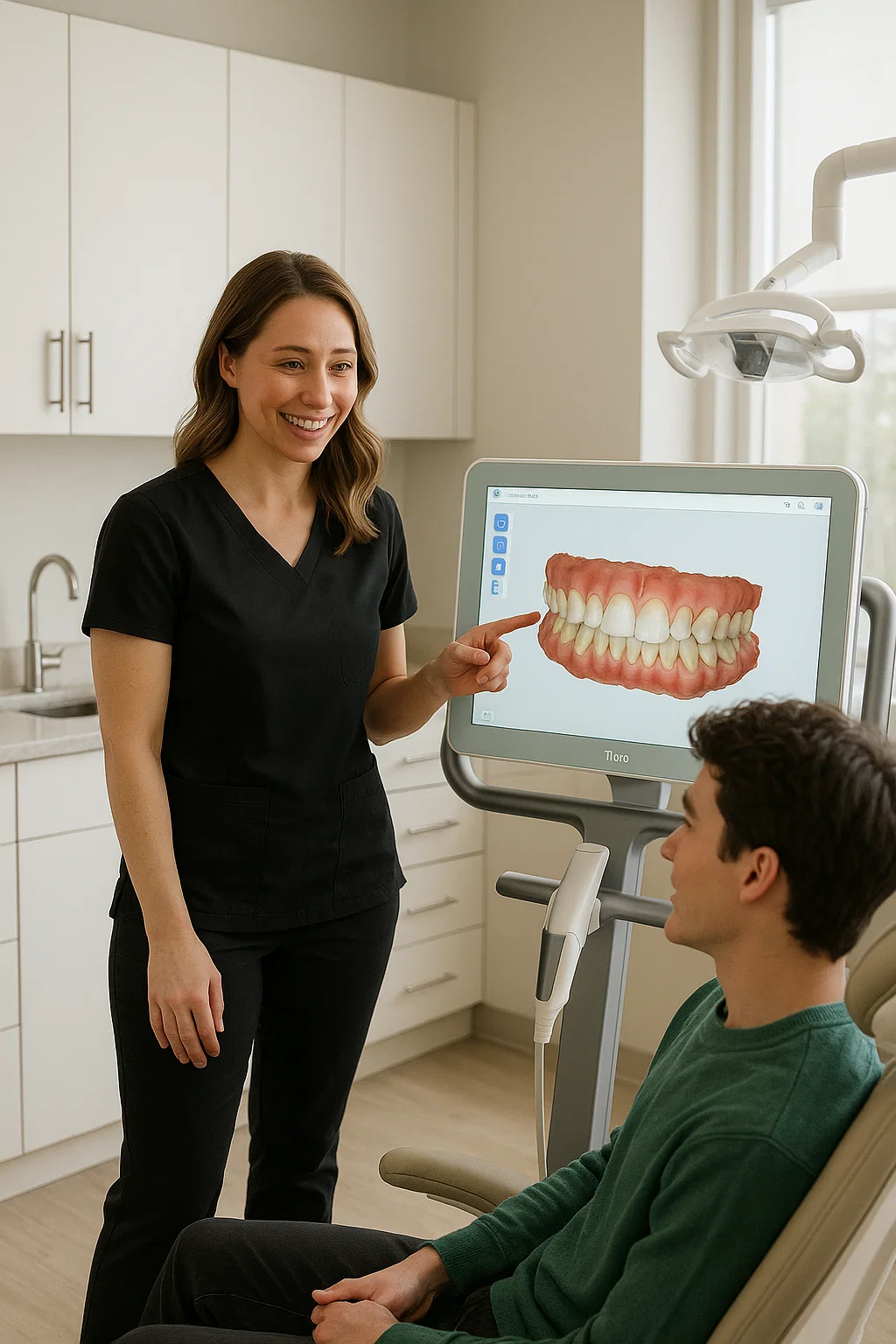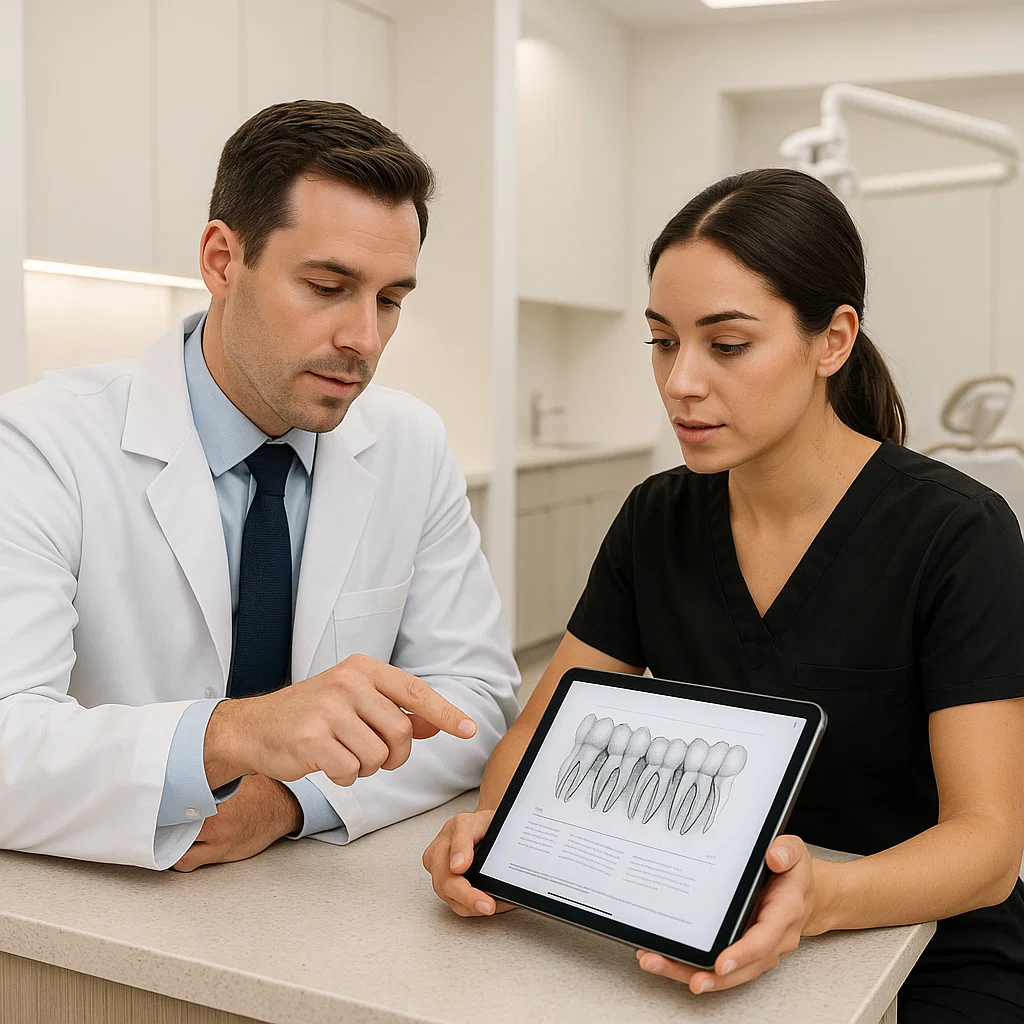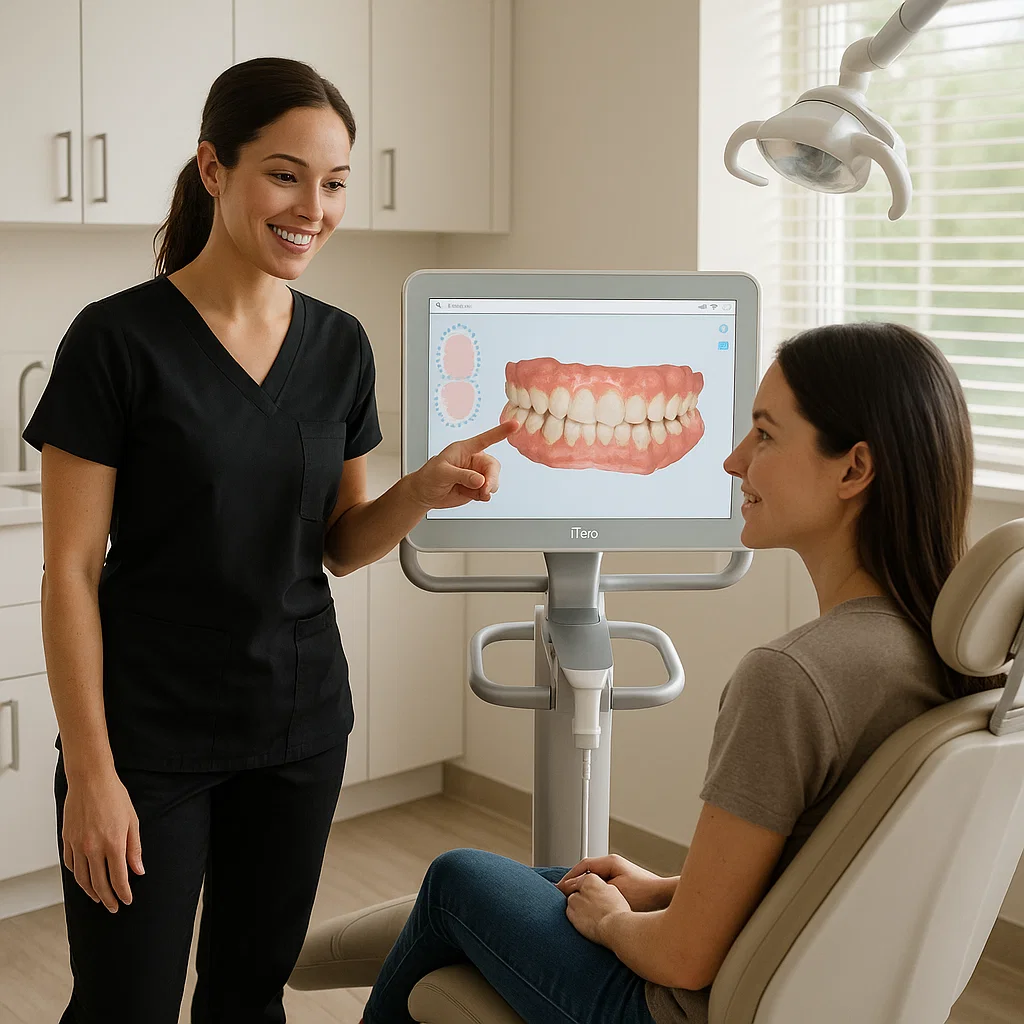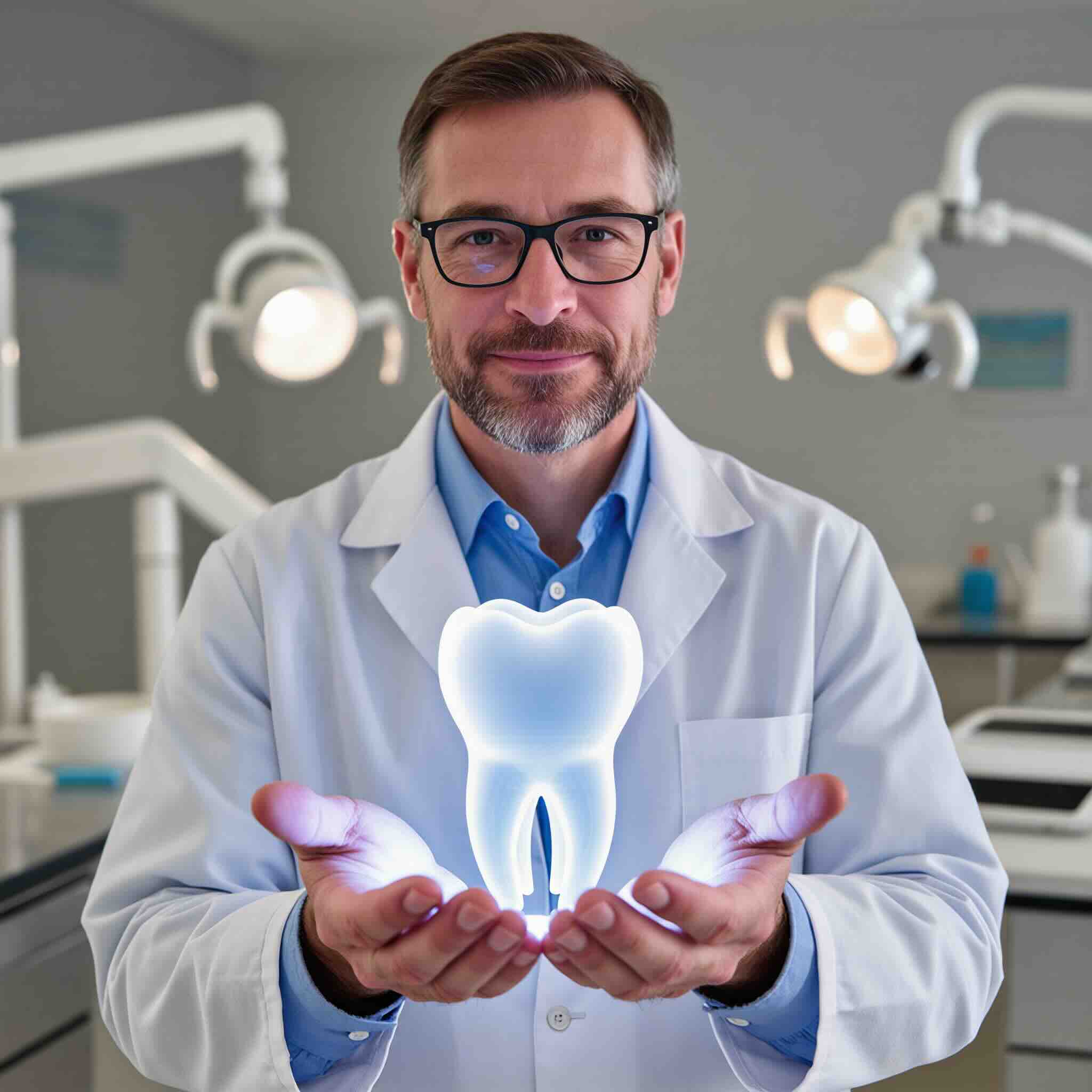Your smile deserves more than a quick glance.
At KYT Dental Services, our comprehensive exams give you a complete understanding of your teeth, gums, bite, and long-term health — so nothing gets missed.


A quick check might spot today’s problem — but only a thorough exam uncovers hidden issues before they become painful or expensive. A comprehensive exam:




✨ Complete exam of all teeth, gums, and bite
✨ Full set of X-rays and digital scans
✨ Oral cancer and TMJ screening included
✨ Builds a personalized, long-term treatment plan
Bottom Line: A comprehensive exam gives you the full picture of your oral health, preventing small issues from turning into emergencies.

⚠️ Exam limited to one tooth or area of concern
⚠️ Only the necessary X-rays taken
⚠️ Goal is to diagnose and treat an immediate problem
⚠️ No full evaluation of overall oral health
Bottom Line: A limited exam solves today’s issue but may miss underlying problems.
Comprehensive Exam:
Limited Exam:





